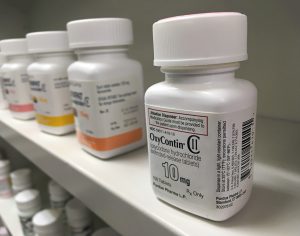Have you been directly affected by the opioid epidemic in America? Millions of people have become addicted to these powerful drugs—and for many, that addiction started with a legally prescribed medication to treat legitimate pain. One report estimated that more than 59,000 people died from drug overdoses in 2016—and most of those were caused by opioids. The President has even declared opioid abuse a national public health emergency.
I’ve written before in this space about the opioid epidemic and the massive opioid litigation gearing up across America as well as the establishment of centralized multidistrict litigation. So far, these cases primarily involve state and local governments suing opioid manufacturers and distributors for their roles in the opioid crisis.
No doubt governments have suffered financial losses from the skyrocketing number of overdoses requiring emergency treatment. In North Carolina alone, the cost of opioid-related accidental overdose deaths was estimated at $1.3 billion in 2015.
But if you’re a victim of the opioid epidemic—either through your own addiction or that of a loved one—you may be wondering whether you’ll ever see any benefit from these government lawsuits or whether you can sue directly. After all, the government’s losses are secondary, while you may have lost your job, home, relationships, or loved one.
Will these government lawsuits affect your ability to file your own case? The answer depends both on who might be responsible for the harm and how you could hold them accountable.
Who’s Responsible?
The government cases have focused on drug manufacturers and distributors. They allege that these businesses overzealously marketed opiates for pain treatment, misrepresenting their risks and benefits.
Other lawsuits have gone after doctors, arguing that they negligently prescribed addictive drugs without fully explaining the risks. It’s easy to see why doctors are targets: The Centers for Disease Control and Prevention (CDC) reported that “In 2015, the amount of opioids prescribed was enough for every American to be medicated around the clock for 3 weeks.”
With that kind of rampant overproduction and overuse, and drugs that prove addictive to as many as one person in every four who receives an opioid prescription, this epidemic might have been unavoidable.
How Are These Drug Suppliers Responsible?
In product liability cases, there are three general ways to hold a manufacturer or seller responsible for the injuries to someone who is hurt using a product. That product might have:
- A defective (and dangerous) design. Think of tobacco, for example—if used as intended, it causes serious negative health effects.
- A manufacturing defect. A product that is otherwise safe might have been produced in a way that made it unsafe. For example, if a batch of ice cream is accidentally contaminated with salmonella as it is mixed, that is a manufacturing defect.
- A defect in warnings. A product might be unsafe in certain predictable situations, yet the manufacturer or distributor failed to warn customers about those risks. If a toxic household cleaner didn’t advise users to wear gloves that could qualify as a failure to warn.
 The most likely avenue for opioid litigation by individuals is the third, a failure to warn patients of the risks of addiction. But one of the problems with opioid litigation is that each potentially responsible party can blame someone else. Manufacturers and distributors point the finger at doctors who over-prescribed drugs, while doctors argue that they didn’t understand the risks either, given the heavy promotion from pharmaceutical companies.
The most likely avenue for opioid litigation by individuals is the third, a failure to warn patients of the risks of addiction. But one of the problems with opioid litigation is that each potentially responsible party can blame someone else. Manufacturers and distributors point the finger at doctors who over-prescribed drugs, while doctors argue that they didn’t understand the risks either, given the heavy promotion from pharmaceutical companies.
As an individual, this finger-pointing is especially problematic, because there will always be a finger pointing back at you.
Misuse of Narcotics
In most product liability cases, people are injured using a product in the way it was designed to be used. This is how the tobacco litigation unfolded: people were injured because they were smoking cigarettes, not because they were misusing cigarettes.
Unfortunately, the fallout from opioid abuse generally comes from off-label use, where people start using more of the medication than they were supposed to. Many people become so desperately addicted that they resort to street drugs like heroin to satisfy their physical cravings.
Manufacturers, distributors, and doctors can all argue that the addict is responsible for the destructive effects of opioids. If the patient had stuck to the prescribed dose, none of this would have happened! Governments avoid this problem, because they had no role in that off-label use.
But is it really your fault if you became addicted to opioids? If you’re like most people prescribed these potentially addictive narcotics, you weren’t an addict before you got that prescription. Addiction is a disease; the negative or even illegal behavior that follows is arguably caused by the addiction itself. When the addiction was a foreseeable consequence of the original prescription, are you solely responsible for that conduct?
That’s the question we’re interested in examining. At least some courts are trying to make sure that the government lawsuits don’t impede the right of affected people to sue individually. Expect to see more here about opioid litigation—both government and individual—in the future.
 North Carolina Product Liability Lawyer Blog
North Carolina Product Liability Lawyer Blog


